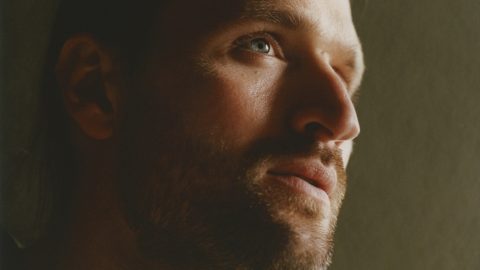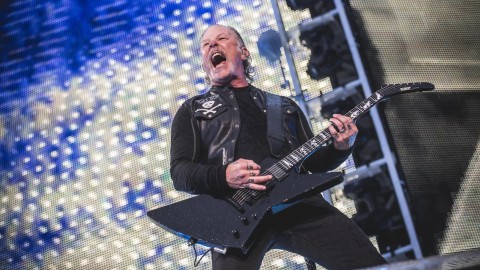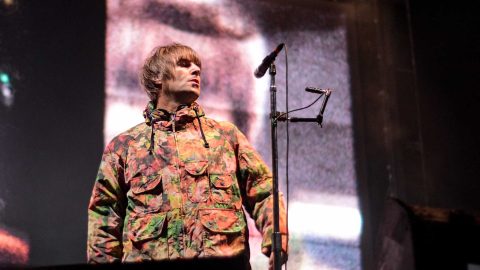Bree Runway is a bold new DIY musician from Hackney whose music draws as much on early noughties-era MTV as it does her rich Ghanaian heritage — and it’s an approach that’s already earned her favourable comparisons with the likes of Missy Elliott, Grace Jones and Kelis.
Watching and studying artists like The Neptunes, Britney Spears and Lil’ Kim during her teenage years gave Bree an escape from the relentless, racist bullying she experienced at school. She now uses those experiences to inform her songwriting and help others who may be dealing with similar issues.
Bree’s big break arrived when she emailed her demos to as many music executives as she could find — and, 35 minutes after hitting send, a major label replied. Bree signed to Universal just weeks later, and she’s since released her second EP, ‘Be Runway’, which has earned the seal of approval from the likes of Rihanna, Stormzy, Kehlani and Diplo.
NME caught up with Bree to talk about her challenging start to music, the process behind writing her brand of “destructive pop” and how she learned that Missy Elliott was a big fan of hers in the middle of the night.
NME: Your music has earned you a cult following online because of its varied and fearless style. How would you describe your sound?
Bree Runway: “It’s genre-bending and genre-fluid. It’s pop, trap, dance, R&B, rock, PC music — hell, it’s even sometimes country music too! Black women in music are always expected to sing R&B or soul: we are always boxed in. I’m always asked if I’m a soul singer and I say, ‘No, actually, I make very cut-throat, destructive pop that is all genres and everything at once.’ I try to study a genre I don’t really listen to on a day-to-day-basis because there is honestly inspiration everywhere: it’s best to go digging in places you don’t normally go.
“Artists from my native Ghana got me into music — old artists like High Life, who my dad would play constantly. My dad was a drummer and would always have music on around the house. It was through MTV that I started discovering artists like Lil’ Kim, Britney Spears, Madonna, Missy Elliott, Pharrell, Kelis, The Neptunes: those artists helped me to evolve my sound into what it is today. When these guys performed, they gave a major middle finger to the industry and didn’t give a fuck. They weren’t afraid to get ugly for their art, and that kind of non-conformity drives what I do.”
When did you start making music?
“In school I was interested in music, but I never saw myself being a musician at that point. Music technology was the only subject I cared about: it taught me the basics of music production and I started making beats and freestyling with my friends. Later on, I bought a £200 home studio set-up with my first pay cheque and I recorded my first ever EP, ‘RNWY 01’, entirely at home. It taught me a lot about being a self-sufficient, DIY artist who knew exactly what kind of sound she wanted.
“I got to a point where I started to wonder about what else I loved as much as this and there wasn’t anything. But it was always a fear thing when it came to me thinking about pursuing this as a full-time career. I didn’t want to put myself out there. When you make music, there’s a chance you get famous; there’s a chance you get seen and that exposes you to everyone saying whatever they want about you. That reminded me of school and how much I got bullied. I was so scared to show my talent because of how I was made to feel growing up: it was the biggest obstacle I had to overcome. Eventually, it just became more apparent to me that music was a calling and I decided to go for it.”
Your second EP, ‘Be Runway’, sees you emotively exploring the racism you experienced at school. Was it difficult revisiting that time? Did looking back help you to deal with those issues more?
“It was my biggest fear revisiting that time. I tried to erase my darkness when I was growing up. I was bullied a lot for being the darkest girl in class and once I discovered skin lightening creams, I decided that I was going to get rid of my dark skin. I bleached my skin and ended up having to have professional treatment to repair all the damage it had done.
“I started therapy just a few months ago because I realised that I didn’t want those memories to keep affecting me. I felt I needed to be more equipped to deal with them. I’m already resilient and thick-skinned but I experienced something really cruel, and I wanted to have a place where I could go and unpack these things so I could fully evolve into the adult version of myself. Sometimes, I do still feel like that little girl hiding from people.
“I think therapy has definitely had an impact on the next EP; I feel like I’m more comfortable now with letting fans into [the] more real-life issues that have happened to me. It’s inspired me to go deeper into that time.”
The response from many of your younger fans who were going through similar was overwhelming…
“It really was. The highest I felt was when I started making music and talking about myself and my feelings and experiences for the first time, turning my pain into something positive. I overcame things I never thought I’d overcome. I never thought I’d ever feel comfortable as a dark-skinned woman and then, suddenly, I did. I received messages from fans all over the world telling me how much hearing my story about colourism helped them: it was so warming to hear their stories.
“Music fans and the public are getting fed up of seeing a lack of diversity in the industry and a lot of what I saw came in response to that, too. Privilege is boring. We need to forget about privilege and magnify talent. Seeing [a lack of diversity] makes me more determined to challenge it. Any hurdles I see now, I’m not focused on the hurdle – I’m focused on overcoming it.”
After you made your first EP, major label interest grew almost immediately. Did that help rebuild your confidence after your experiences at school?
“Absolutely. I stepped into the major label situation knowing exactly who I was and exactly what I wanted to achieve. If I’d have done that a year earlier, before making that EP, I think I’d have been in an unhappy place because I was still figuring things out. I stepped into that situation as a woman who knew what she wanted.
“My DIY ethos helped too. I started posting live shows online and one of my first ever videos went viral — it had something like 50 million hits, or something crazy. I came up with all my own ideas for the video — the treatments, the styling, the visuals, everything — and I still do.
“I always knew that I wanted to sign to Universal. I used to work in a shop on Kensington High Street and it was close to Universal. On my lunch hour, I would go there and stand outside and just stare at all the music videos playing through the windows. I knew I wanted to be there one day.”
One of your heroes growing up, Missy Elliott, gave your latest single ‘APESHIT’ her seal of approval recently. How did it feel seeing her reaction?
“It was mad! I’m so thrilled but I still feel like my body is still in a really intense shock mode after seeing that unfold. It was 3AM and I was literally screaming when I saw that Missy Elliott tweeted about the ‘Apeshit’ video. I obviously couldn’t scream loudly — it was 3AM! — but it was like an internal scream and of course then I started to shake. Missy Elliott!
“When I was growing up, I was glued to MTV watching Missy and here she was, bigging up my new single. She’s also following me on social media now and I still can’t believe it!”
What’s coming up next?
“I’m appearing on Aminé’s next single alongside Slowthai and Vince Staples, and I can’t quite believe I’m a part of that. In terms of other stuff, the word ‘album’ scares me right now: I feel like I want to get two more EPs done, and then an album. I want to work my ass off this year. I want to keep on putting out epic videos, epic songs and maybe even work on some dreamy collaborations. I’m playing The Great Escape and I’m building towards my own headline shows.
“I think my sound has evolved a lot and it’s more confident than ever before. It’s more aggressive and in-your-face production-wise, too. It’s much more destructive; it’s much more of a statement.”
The post Bree Runway: Meet the Missy Elliott-approved rising star whose fearless pop is challenging colourism appeared first on NME Music News, Reviews, Videos, Galleries, Tickets and Blogs | NME.COM.






